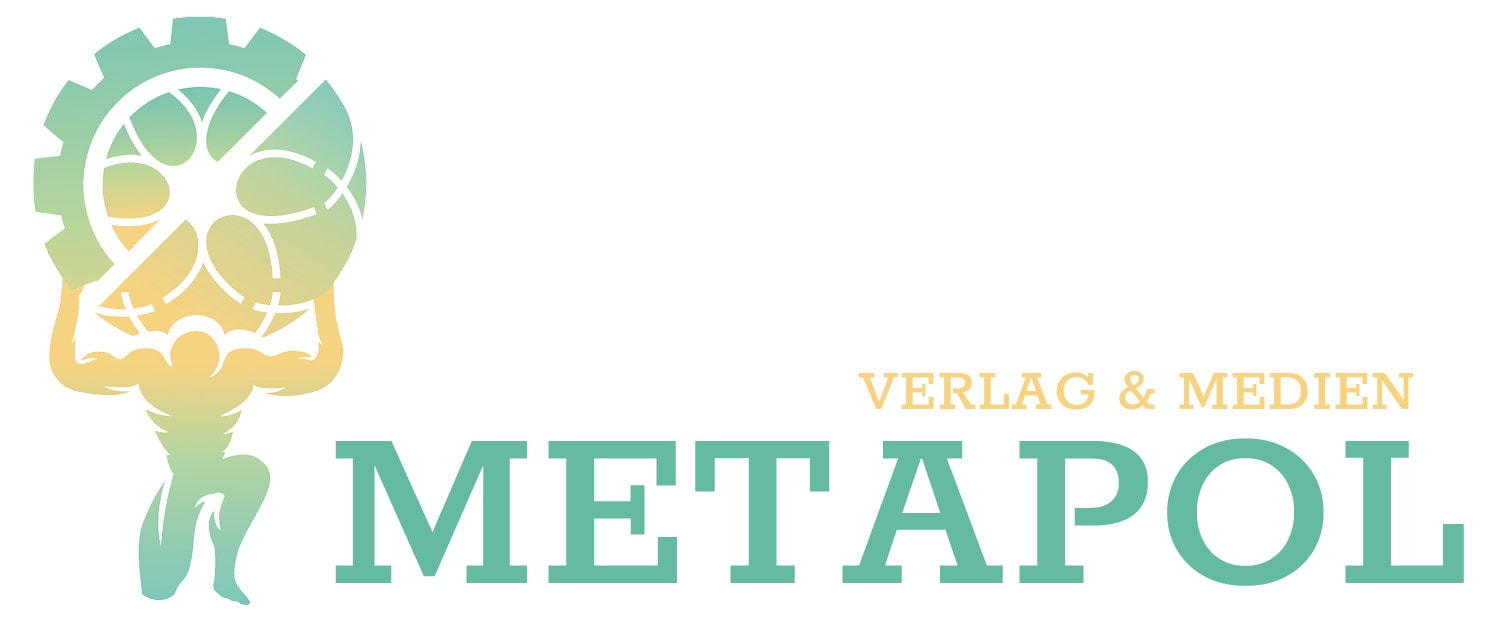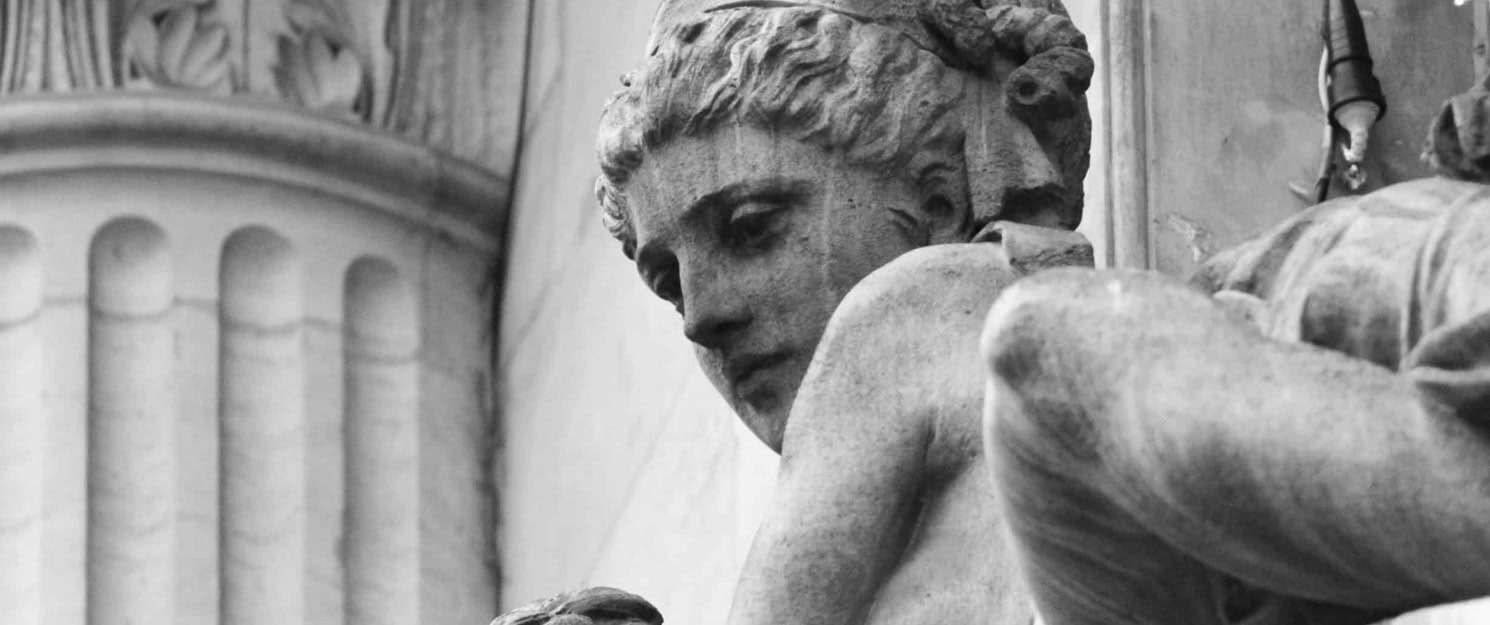The following text is by our Spanish guest author Carlos X. Blanco and deals with the idea of Alexander Dugin’s Fourth Political Theory as an alternative and genuine counter-model to the prevailing neoliberalism. The article exclusively reflects the thoughts and convictions of the author and need not be congruent with those of the editorial team. A good basic text that offers plenty of material for discussion. The editorial team.
If there is a common denominator to the three predominant political theories in the world, especially in the Western world, it is materialism. According to the characterisation of the Russian philosopher Aleksandr Duguin, the three prevailing political theories of Western Modernity were, in this order, 1) liberalism [1TP], 2) socialism–communism [2TP] and 3) fascism and national socialism [3TP]. All three are permeated by a lethargic and brutal metaphysics, which is the materialistic philosophical conception. This is seen even in the very statements that political theory offers about itself, which often serve very different purposes from those of a true philosophy: the purpose of showing the truth. Propaganda and polemics against rival political theories are factors that are at the root of political theories not being presented as they really are, and it is necessary, dialectically, to understand the previous ones from a new political theory that understands and surpasses the previous ones. Every political theory that emerges at the height of its time entails the commitment to understand that same time and, at the same time, inherently, to surpass the previous ones that, in one way or another, claim to maintain their validity and influence.
Dugin’s Fourth Political Theory [4TP] is not just chronologically later, as with the claim that evening follows morning, or autumn follows spring. The 4TP must be – and indeed is – an overcoming of materialism as the common denominator of liberalism, socialism-communism and Nazi-fascism.
The 1TP, it is worth remembering, does not stick exclusively to Locke’s liberalism, but also to the crude materialism of Thomas Hobbes, another Englishman who, like his distant but fundamental predecessor, the nominalist William of Ockham, radicalised Aristotle’s thesis: the only thing that exists is the individual, and there is no place for ‘second’ substances. The linguistic terms that correspond to supposed collective, abstract, generic entities only exist as terms of language (ontologically, they are limited to being voice strokes, ink stains on paper, electromagnetic impulses in a computer…). The nominalists‘ terms refer univocally to individuals – human or not – separate and ab-solute (i.e. “loose”, detached from the background from which they stand out). It is evident, as Costanzo Preve has already pointed out, that the key to the ontology of the 1TP lies in the underlying socio-political doctrine, an ontology of social being: the individual entity, univocally designated in the nominalist manner, is none other than the human individual absolutised by liberalism: a socio-political and economic atom. That Luciferian philosopher, also English, Mrs Thatcher, expressed it with the clarity of the flames of hell itself: ‘society does not exist’. This is pure materialism: it is not just an abstract materialism underlying a theory of government and an economic conception. It is an imposed materialism: society must be converted, manu militari if necessary, and by means of ‘shocks’ (Pinochet, Videla, Yeltsin…), into a mass of atoms before a state at the service of certain all-powerful capitals, i.e. society must disappear.
The 2TP has the advantage of not hiding its materialism. It is true that the Hobbes of the 1TP did not hide it either, but the rhetoric of ‘free individual initiative’, of liberty and open society is a rhetoric that continues to cajole many people. Socialism and communism, especially in its Marxist-Engelsian version, is an avowedly materialist and atheistic theory. But it is not that simple. We owe to several authors (Gramsci, Preve, Fusaro, S. Bravo…) the reinterpretation of Marxist philosophy in an idealist key: the philosopher from Trier was a faithful disciple of Fichte and Hegel, a philosopher of praxis (‘in the beginning was action’), in the most genuine German tradition, continued thanks to Gramsci, by the Italians. However, the dogmatic and obligatory implantation of so-called ‘dialectical materialism’ and ‘historical materialism’, not only in the communist states (USSR, Eastern Europe, China, etc.) but also in the communist parties of the West and in a large part of the world, has justified this identification between 2TP and materialism. However, I believe that the great master Preve has shown the world that what is perennial and true in Marx’s work is that beings are communal beings, constantly weaving and rebuilding their community through action, and it is communal action – full of roots despite the onslaught of capital – that transforms the world and makes it evolve, not in his late-Enlightenment thinking, but in his Aristotelianism. Human beings are communal beings, constantly weaving and rebuilding their community through action, and it is communal action – full of roots despite the onslaught of capital – that transforms the world and makes it evolve.
The 3TP is also a crude materialism. In its National Socialist version, no one can deny that behind the nationalist or ‘patriotic’ appeals, the destination of that political theory was the Race, not the nation, a supposedly superior race, invented on the basis of pseudo-scientific premises drawn from 19th century British and French science. The purely linguistic concept of the ‘Aryan’ was extrapolated and mixed with the social Darwinist pseudo-science of the 19th and early 20th century era of Western colonialism. Humanity was described in terms very similar to cattle, thus speaking of superior and inferior breeds. The 3TP in fact overlooked and manipulated the traditionalist and spiritualist contributions of the thinkers of the Conservative Revolution, and understood the German national state, in the National Socialist case, as a mere instrument in the service of a mystical and unreal ‘race’. In the case of Italian fascism, precisely the proclaimed ‘statolatry’ links 3TP more clearly to materialism, which tends to reduce all expressions of social and communal life to one. Perón’s Organised Community, and other forms (poorly developed in practice due to the attacks and interference of neo-liberalism) would perhaps have been less materialistic forms of 3TP, endowed with more spiritual entrails. See, for example, General Perón’s profound non-vaticanist Catholicism. The cult of the state, above the peoples and communities that give rise to it, is the triumph of a ‘Roman’ mentality, prosaic and materialistic, which the great Oswald Spengler found in other ‘corresponding’ organisms (the Aztecs, for example).
It is the 4TP that is called upon to restore the spirit. The subject – Dasein – of History is constituted by the People (Ethnos, Volk). These peoples ‘are there’, they are primary realities, and not all of them must or can have their own state entities. Sometimes, the fortune and vital expansion of a people lies in their good integration into higher units – empires, civilisations – which ‘transport’ them in time, which serve as vehicles of their possibilities, which are always, in the last analysis, spiritual. The micro-peoples (Basques, Bretons, Catalans, Corsicans), as well as those of the East and the Balkans, were not only victims of oppression and acculturation by the superior state unit in which they were housed, a fact that in many cases cannot be denied, but were also ‘saved’ for history by these superior units. For example, in the case that is geographically closest to me, no one today would remember the existence of a Basque people and language without their rescue for History by the Spanish Crown.
The decisive struggle today will be a struggle between the First Political Theory and the Fourth. The North American hegemon and its Anglosphere represent the crudest materialism, which makes the individual no longer a ‘subject capable of choosing in an open society’, but a selfish atom, a compulsive consumer (even if no longer a producer), avid for sex and other pleasures disconnected from the love of people, country and nature. In the face of the stark materialism of the 1TP, a new ‘idealism’ is rising. Just as Romanticism shook Europe at the end of the 17th century and shook all those wigged heads and wrinkled powdered faces, a youthful Sturm und Drang of the 21st century must and can begin. Perhaps it will start small: a group of teenagers will burn their sweatshirts with the huge Union Jack and become loyal to their culture again. The commercial ‘mongrel’ music promoted by the Anglo-Saxon majors will fail, and the youth will seek roots and depth of feeling. Procrasy in dress will give way to decorum and modesty. The taste for the noble, the wise and the beautiful, as it becomes generalised, will challenge the ‘supermarket culture’… It can happen if there is a revolution in the Spirit.
It is not only an open struggle in the military, commercial, cybernetic field… It is a struggle for consciences. It is a struggle of ideas. It implies a self-recognition. If every young person starts to say, from tomorrow, ‘I am not like the horrendous hamburger chains and your “reggaeton” producers want me to be’, ‘I am not an animal, I am a person’, neo-liberalism will see itself as a tide that will not cease to recede. There will be, then, many battles to fight, but something will move in that sort of magmatic chamber, the Unconscious; a deep and unstoppable energy that springs from the collective unconscious of each people will be mobilised. Great chimneys and craters will then open and the explosion will not be long in coming. It is a battle against materialism on all fronts, and within them, on the fronts of the Spirit: aesthetics, leisure, decorum, morality, love and loyalties, all that which is the heritage of man and not of the naked monkey, and which is the heritage of the human being and not of the monkey. is designing neoliberalism; it is the magma that may one day burst and shoot up to hurt the clouds.

